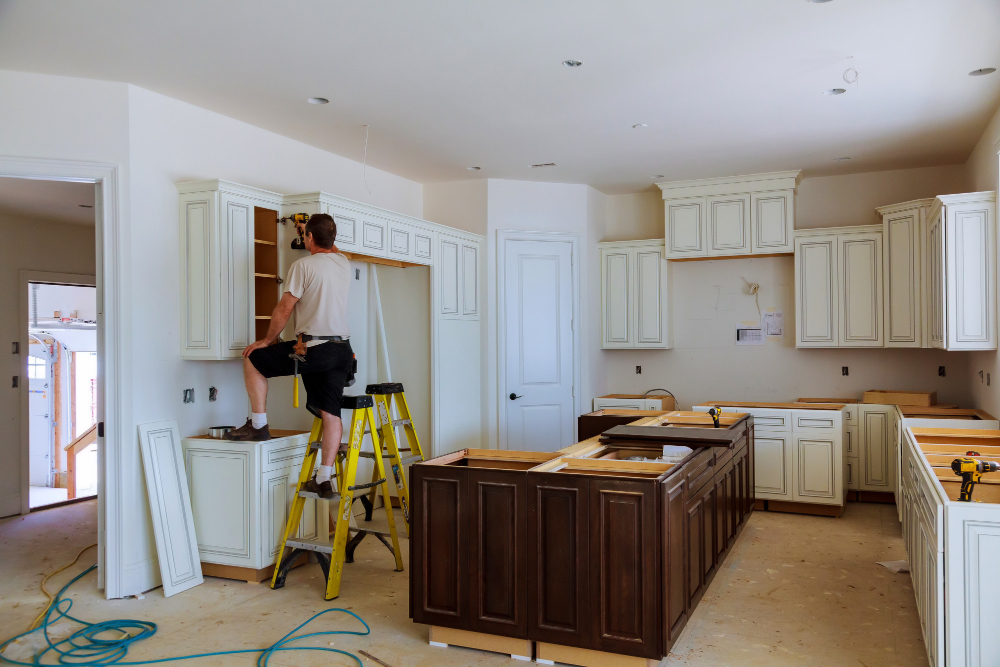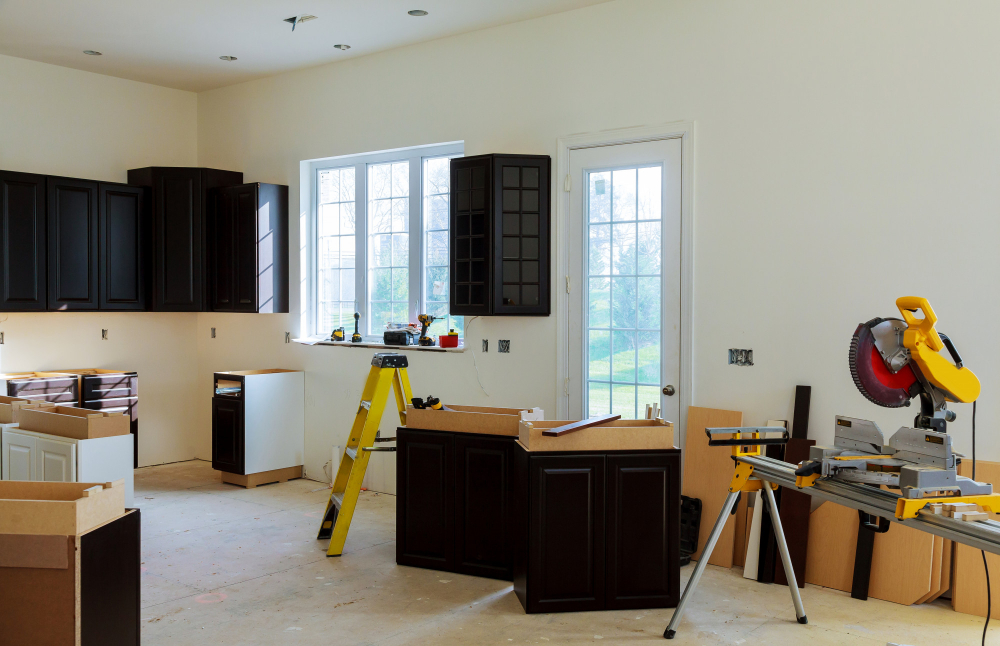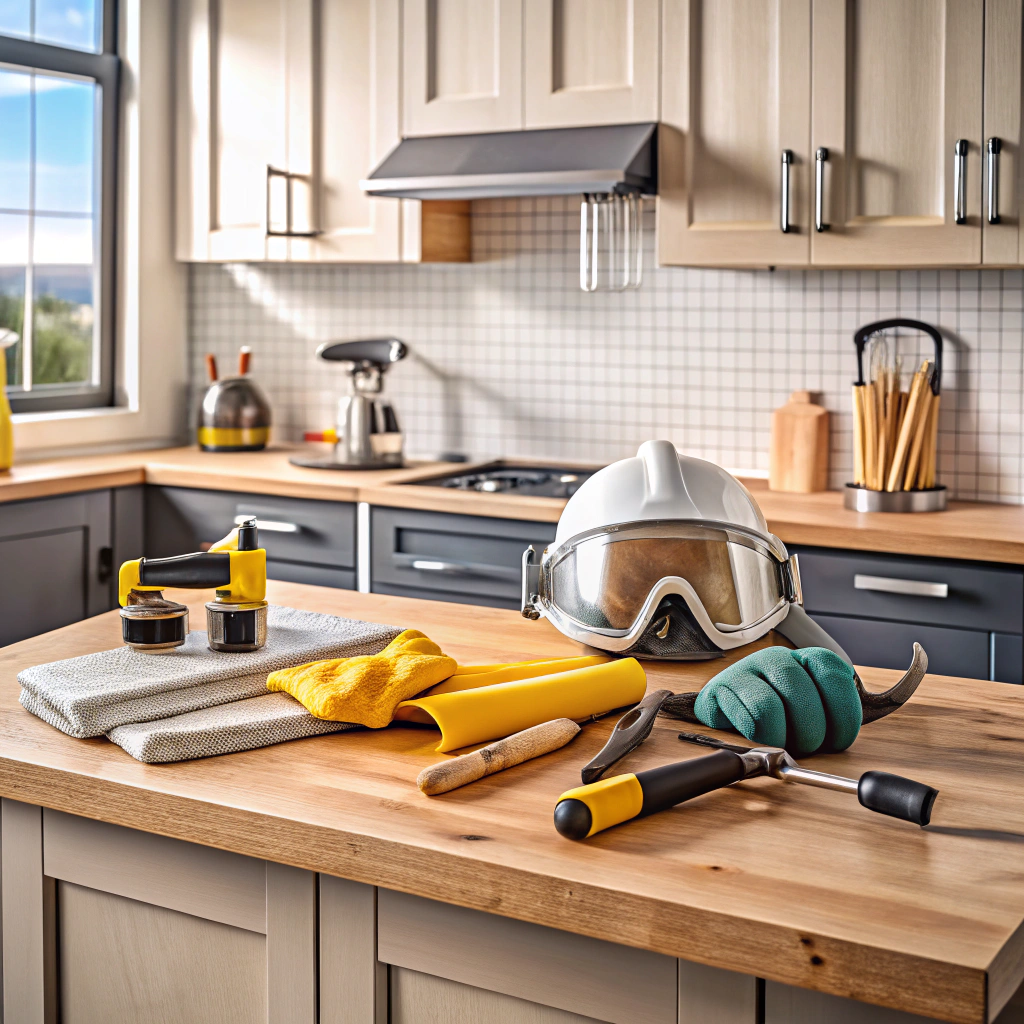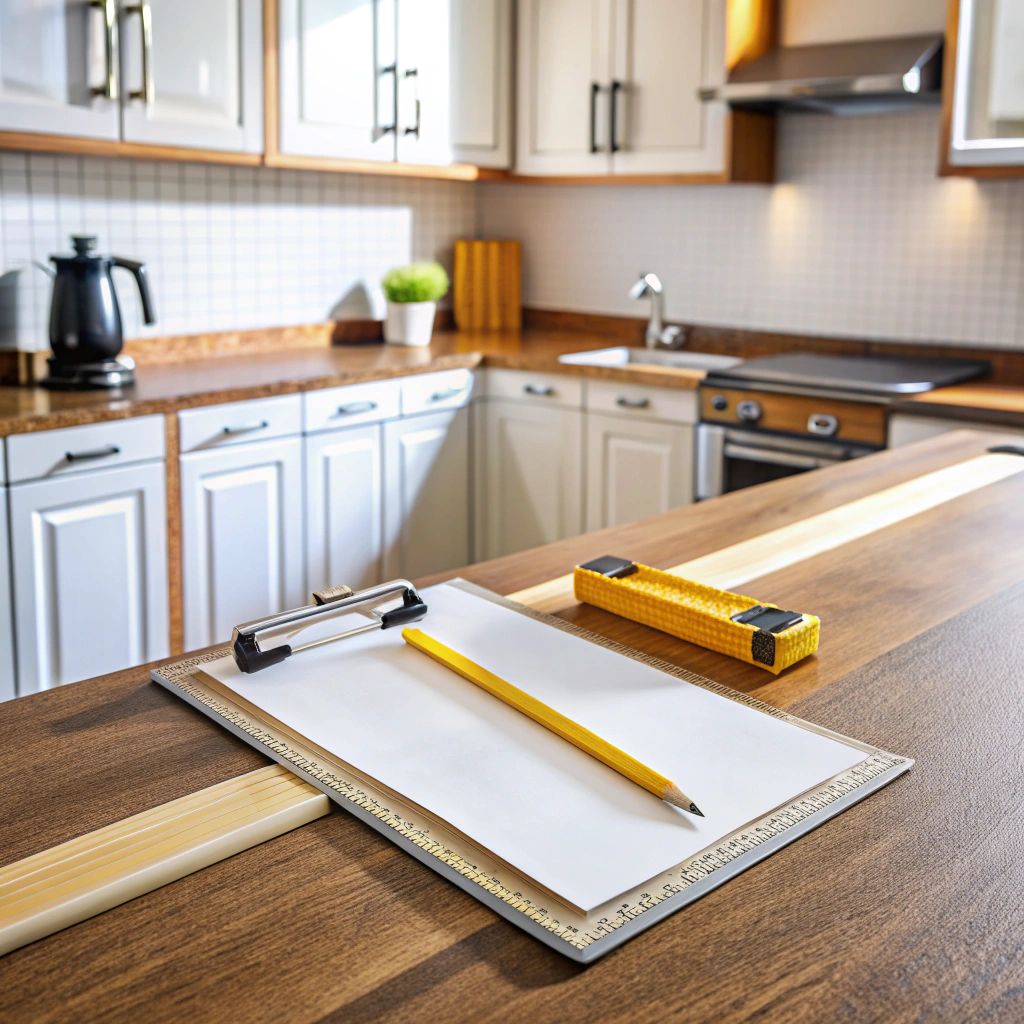Last updated on
Learn if a permit is necessary for your next kitchen remodel with expert insights from a seasoned male home decorator.
Oh, the excitement of picking out new countertops, the thrill of choosing a backsplash that ties the whole room together, and the satisfaction of finally having your dream kitchen come to life.
But before you dive headfirst into your renovation project, there’s one important question you need to ask yourself: do you need a permit?
Getting caught up in the excitement of a remodel can make even the most practical homeowner forget about permits. But trust me on this one – ignoring permit requirements can lead to some serious headaches down the line.
So let’s take a closer look at what permits are required for kitchen remodels and why they’re so important.
Key takeaways:
- Scope of the remodel determines if you need a permit.
- Permits are required for structural changes and electrical/plumbing alterations.
- Local building codes vary, research them before starting your project.
- DIY projects may still require permits for electrical and plumbing work.
- Electrical and plumbing permits ensure safety and compliance with codes.
What's Inside
Permit Requirements

When it comes to kitchen remodels, permit requirements can vary depending on the scope of your project and where you live. In general, if your renovation involves any structural changes or alterations to electrical or plumbing systems, you’ll likely need a permit.
This includes things like moving walls, adding new outlets or light fixtures, and installing new appliances.
It’s important to note that even seemingly minor changes may require a permit – for example, replacing cabinets might not seem like a big deal at first glance but could still require approval from local building authorities.
The reason permits are required is simple: they ensure that all work done on your home meets safety standards set by local building codes. By obtaining the necessary permits before starting work on your kitchen remodel project ensures that everything is up-to-code and safe for use once completed.
In addition to ensuring safety compliance with regulations in place in most areas across the country; failure to obtain proper permits can result in fines as well as delays when selling the property down-the-line due non-compliance issues discovered during inspections conducted by potential buyers’ inspectors.
Kitchen Remodel Scope

When it comes to kitchen remodels, the scope of your project can vary greatly. Some homeowners may opt for a simple update, such as new appliances or fresh paint on the walls.
Others may choose to completely gut their existing kitchen and start from scratch with a brand-new layout.
It’s important to understand that the scope of your remodel will directly impact whether or not you need a permit. Generally speaking, if you’re making any structural changes – such as removing load-bearing walls or relocating plumbing fixtures – then you’ll likely need permits from your local building department.
On the other hand, if you’re simply updating cosmetic features like cabinets and countertops without changing their location in the room, then permits may not be necessary. However, it’s always best to check with your local building department before starting any work just to be sure.
Remember: even seemingly minor changes can have major implications when it comes time for inspections and final approvals. So take some time upfront to carefully consider what kind of updates are truly necessary for achieving your dream kitchen vision while staying within legal requirements!
Local Building Codes

Local building codes vary from city to city and state to state, so it’s important that you do your research before starting any major remodeling project.
Building codes exist for a reason – they ensure that all homes meet certain safety standards and are built in accordance with the law.
For example, some cities require permits for kitchen remodels if you’re planning on moving or adding electrical outlets or plumbing fixtures. Others may require permits if you’re changing the layout of your kitchen or removing load-bearing walls.
It’s also worth noting that building code violations can result in hefty fines and even legal action against homeowners who fail to comply with regulations. So while getting a permit may seem like an unnecessary hassle at first glance, it could save you time and money down the line by avoiding potential legal issues.
In short: don’t overlook local building codes when planning your kitchen remodel!
DIY vs. Professional Remodeling

Homeowners often face the decision of whether to tackle the project themselves or hire a professional. While DIY projects can save money, they also come with their own set of risks and challenges.
One major factor to consider is permits – if you’re doing any electrical or plumbing work as part of your remodel, you’ll likely need permits for those specific tasks.
Professional contractors are well-versed in local building codes and permit requirements, which means they can ensure that your remodel meets all necessary regulations. They also have experience working with different materials and layouts, so they may be able to offer suggestions that could improve the functionality or aesthetics of your new kitchen.
On the other hand, DIY projects allow homeowners more control over every aspect of their renovation project. You get to choose exactly what materials are used and how everything is installed – but this freedom comes at a cost: time investment (which might take longer than expected), potential mistakes due lack expertise on certain areas like electrical wiring etc., not having access specialized tools required for some aspects such as cutting granite countertops.
Ultimately it’s up to each homeowner decide which route makes sense for them based on budget constraints,time availability,and level expertise needed. But regardless if you go pro or DIY route make sure all necessary permits are obtained before starting any work!
Electrical and Plumbing Permits

Electrical and plumbing work is often required. This can include anything from installing new light fixtures to rerouting pipes for a new sink or dishwasher.
And just like any other aspect of your renovation project, these changes require permits.
Electrical and plumbing permits are necessary because they ensure that the work being done meets safety standards set by local building codes. These codes exist to protect homeowners from potential hazards such as faulty wiring or leaky pipes that could cause damage or even injury.
While some homeowners may be tempted to skip the permit process in an effort to save time and money, doing so can lead to serious consequences down the line. For example, if you were ever looking sell your home after completing a remodel without proper permitting documentation on file with your municipality’s building department; this could delay closing until all necessary inspections have been completed which would cost you more money than getting those permits upfront.
So before starting any electrical or plumbing work in your kitchen remodel project make sure you obtain all necessary permits beforehand!




